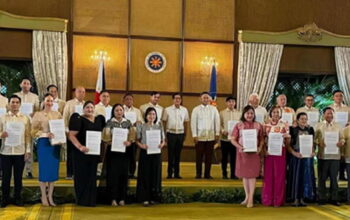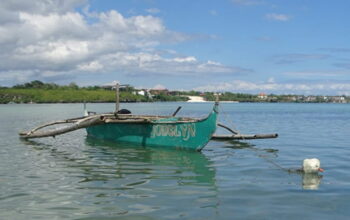THE Department of Public Works and Highways (DPWH) 3rd engineering office has confirmed that the re-blocking project in national highways has been halted but those that have already been started will continue.
DPWH 3 Engr. Magiting Cruz affirmed this in interview after DPWH Secretary Vince Dizon ordered the suspension of said road work.
In a report of press briefing, Dizon said, “Bakit ba ang DPWH binabakbak ang mga kalye na parang OK naman para lang gagawin ulit?”.
(Why should DPWH do the reblocking when it looks like it’s still OK just to do it again?)
Magiting said that the order is mainly based on department order issued by the secretary.
It was learned that some parts of paved (concrete) national highway under the supervision of three district offices of DPWH in the province have been pulverized by heavy equipment for reblocking purposes.
Many don’t understand what is happening but DPWH has the technical know-how to explain why it should be replaced with a new one. And it has the obligation to explain that to the public, said one resident.
The reblocking project has earned the DPWH the ire from the riding public and motorists alike.
A provincial board member once said that it is a waste of public funds.
One “maintenance” effort thru the contractor is the covering of highway concrete pavement with asphalt overlay, like the one in coastal barangay Cantagay, Jagna town.
A former DPWH engineer once said a concrete pavement in highways is more durable than the asphalt overlay.
Provincial Board Member Nathaniel Binlod lamented, “Many of our roads, still in good, operational, and serviceable condition have been subject to demolition and reconstruction. These actions, while perhaps well-intentioned, raise serious questions of prioritization, and coordination.”
He said that time and again, while the highways are being repaired in reblocking, “countless provincial and barangay roads remain unpaved or simply left without any allocation for maintenance. The imbalance between what is being demolished and what remains unattended reflects a misalignment between the actual needs of our communities and the projects being implemented.”
Binlod appealed to three engineering offices of DPWH to confer with Provincial Engineer’s Office before any demolition of roads will commence. He believes that this is a mechanism for technical deliberation, whether the proposed demolition is indeed essential, or whether funds would be better redirected to projects of greater necessity.
The move, he said, is definitely “to prevent wastage of public funds, reduce unnecessary inconvenience to our commuting public, and ensure that scarce resources are devoted to roads that are in dire need of repair or upgrading.” (Ric Obedencio)



